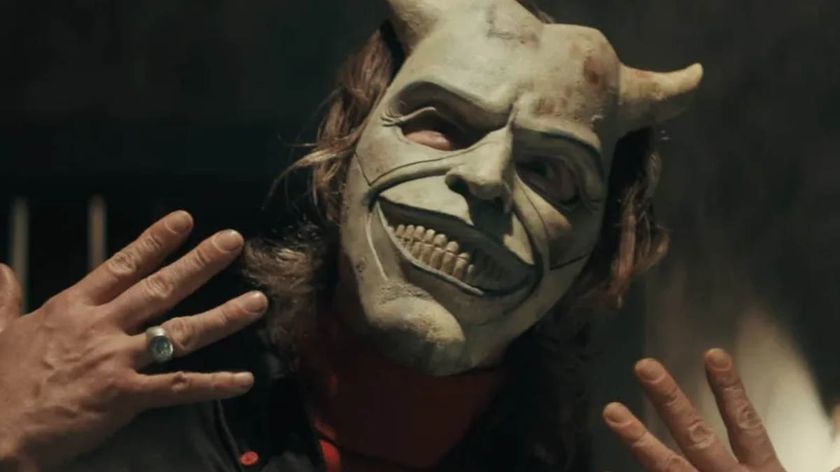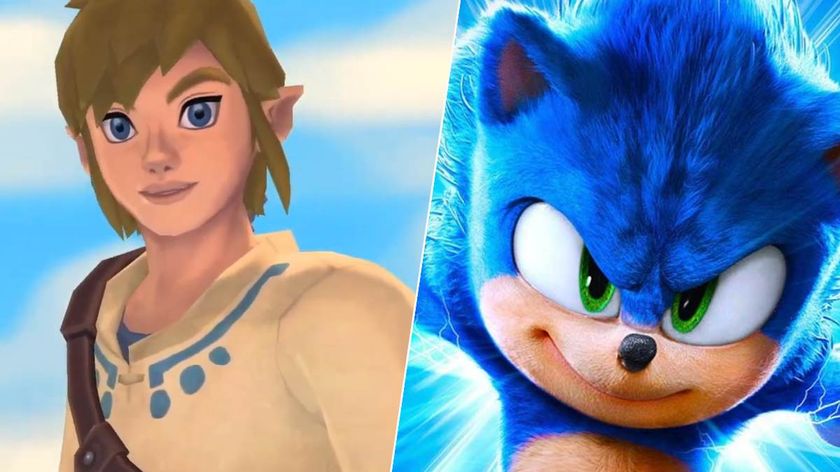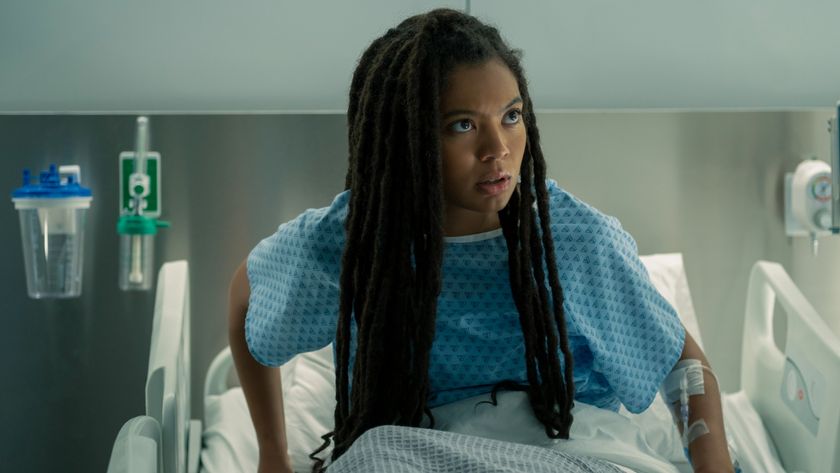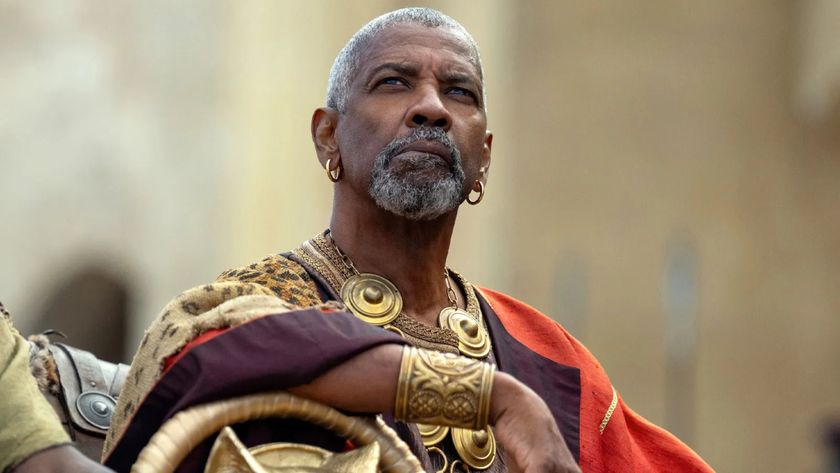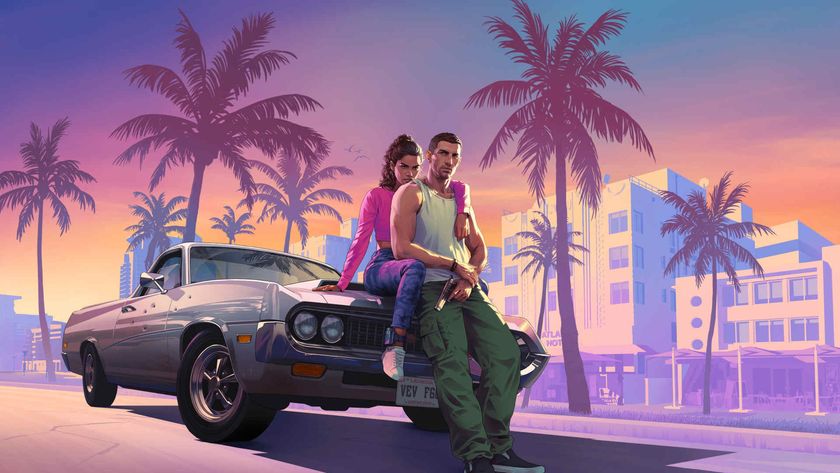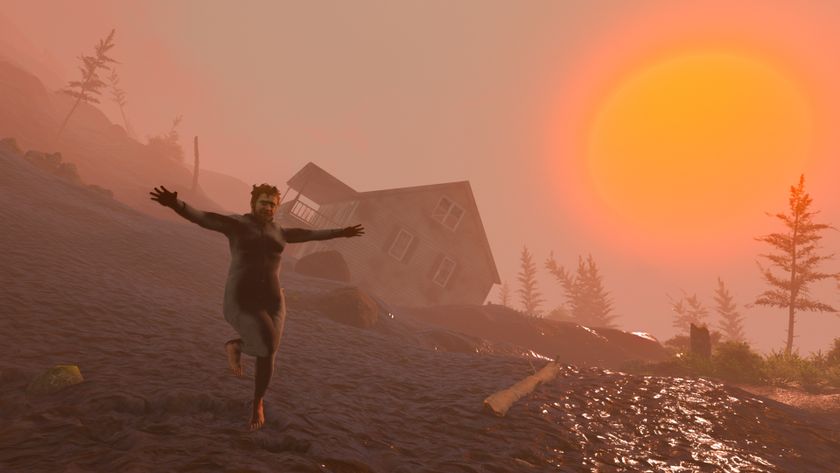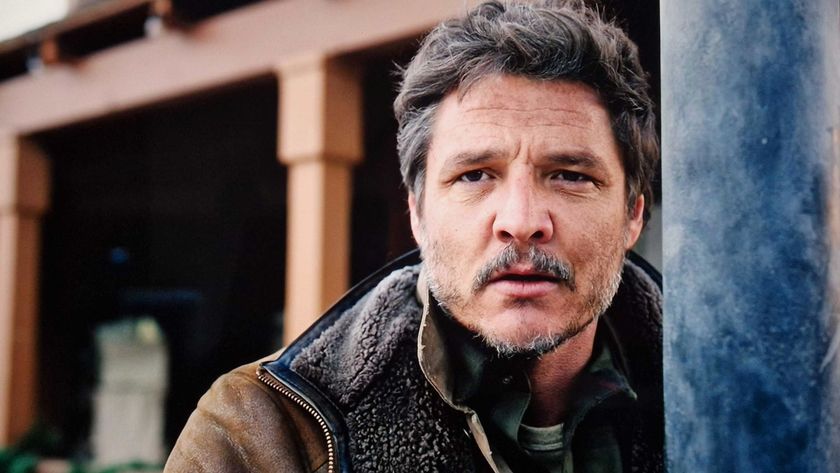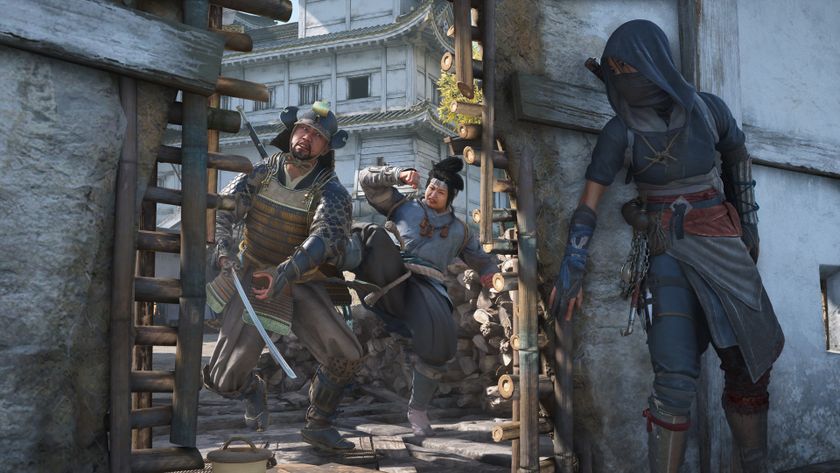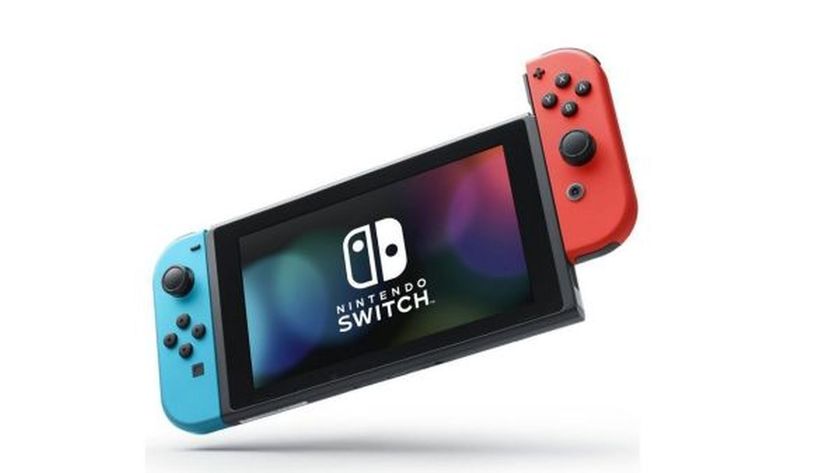Bringing Blade into the MCU is proving hard for Marvel, but the signs were there all along
Opinion | Can Marvel effectively fit Blade into the MCU?
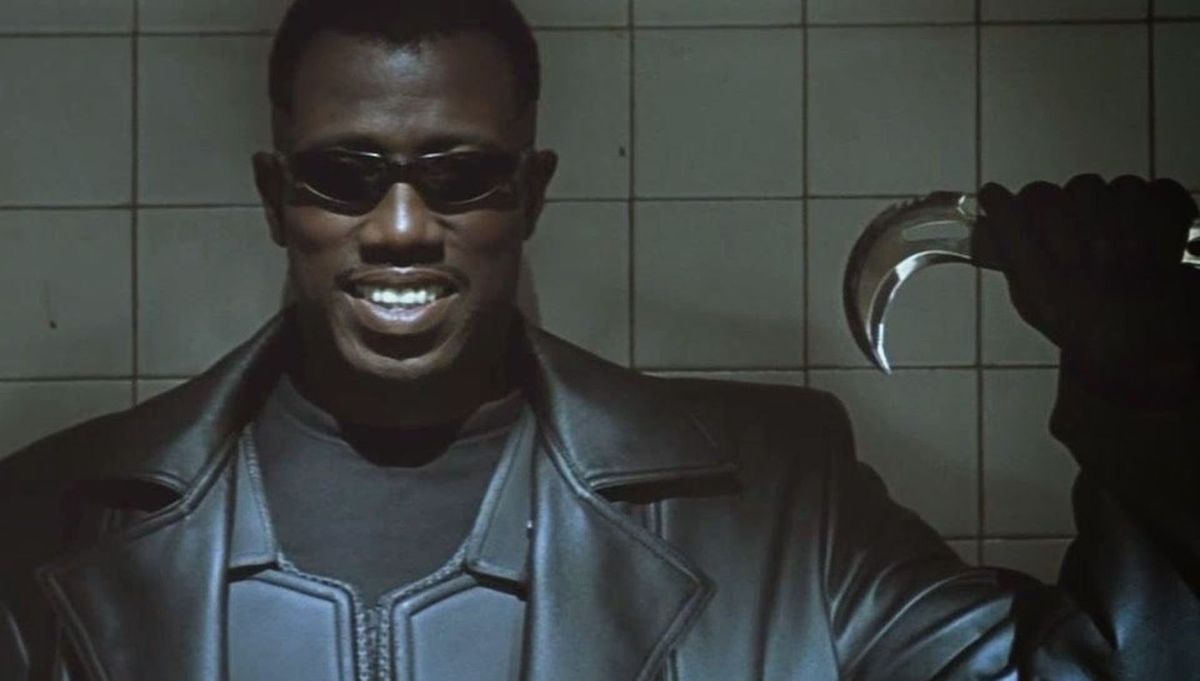
Blade is one of the coolest superhero movies ever made, point blank period, and I stand by this. It's a bold claim, but without Stephen Norrington's 1998 horror-superhero flick, we might not have a Marvel Cinematic Universe – or, at the very least, Marvel movies would look a whole lot different.
Fast forward some 26 years later, Marvel is now planning a redo in order to introduce Blade as a new hero in the MCU. In some ways, this felt inevitable – though the studio has definitely been taking its sweet time reintroducing staples like the X-Men and The Fantastic Four into the MCU.
However, bloody, ultra-violent action-horror isn't really what the MCU, especially under the banner of Disney, is about. Since the new version's announcement, there have been multiple shake-ups in directors, they've been hit with production delays (that are unrelated to the strikes), the script is constantly being rewritten, and not to mention the multiple reports about Mahershala Ali being unhappy. Honestly, it's not looking good, and that's coming from a super fan of the original.
A cursed timeline
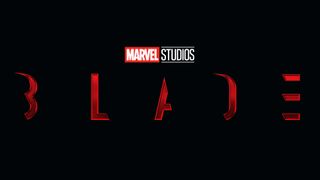
Keep in mind that Blade was first announced at San Diego Comic-Con in 2019, with Mahershala Ali joining Marvel on stage to announce that he would be donning the trench coat and fangs in a new adaptation. In 2022, the movie entered production, with filming slated to begin in October and Bassam Tariq set to direct. That July, Kevin Feige announced at San Diego Comic-Con that Blade would be released in November 2023 as part of Marvel's Phase 5.
In 2022, reporter Jeff Sneider reported that Ali was unhappy with the script for Blade, which, at the time, was reportedly "roughly 90 pages and contains two (lackluster action sequences)." Last year, Variety reported that the script had since morphed "into a narrative led by women and filled with life lessons" with Blade being "relegated to the fourth lead."
Fast forward to June 2024: the film has lost two directors, is on its seventh or eighth writer, and might be eyeing a 2026 release date. Oh, and, filming still hasn't begun. Rather than be stuck in traditional development hell, the project seems to be stuck in some kind of perpetual pre-production purgatory where no writer or filmmaker can see eye-to-eye on what a modern-day Blade movie should be.
Here's why it's not working out
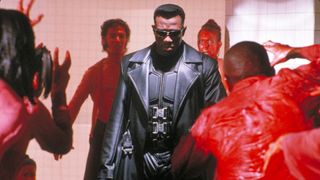
It's not particularly difficult to connect the dots on why this could be having trouble, and why I'm terrified for the end result: it's ostensibly a superhero-horror film following a movie and comic book series that are both frequently deeply dark and bone-crunching-ly violent that has to somehow work under Marvel's definition of an R rating.
Sign up for the Total Film Newsletter
Bringing all the latest movie news, features, and reviews to your inbox
Deadpool 3 has the MCU's first R rating, sure, but – if we're judging by Deadpool and Deadpool 2 – most of that would appear to be for crude humor and some arguably mild neck-snapping violence. The original Blade begins with a blood rave, where gallons upon gallons of blood spray from fire sprinklers on the ceiling of a vampire-only nightclub. There's a scene where they quite literally torture and burn the flesh of a blob-like vampire named Pearl by way of UV light. And what about revenants, the grotesque, zombie-like result of a vampire bite gone wrong? What about the horrific way vampires burn alive when exposed to sunlight?
I'm not suggesting that the new film be a shot-for-shot remake of the first, nor would I expect it to be, but I am saying that the jarring, grotesque nature of Blade is part of what makes it really, really cool. Blade's comic book character origins begin in 1929 London, with his original weapons of choice being daggers made of teakwood with a color palette similar to a Teenage Mutant. The 1998 film reimagines Blade as a Detroit native who ends up in a vampire-populated Los Angeles and has a gun packed with hollow silver bullets that are filled with garlic. This worked well with the sleek, dark superhero style of the ‘90s a la The Crow, or even Tim Burton's Batman; it was a modern update that fit the genre at the time.
Full speed ahead
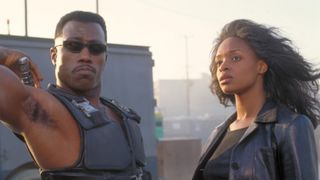
For me, this is clearly the big problem that Marvel is having adapting it right now. What is Blade supposed to look like in 2024, as a character in the Marvel Cinematic Universe? When Sony made Morbius, they attempted a darker, '90s-esque tone, but it felt forced. The only modern-day superhero film that fits that dark '90s superhero vibe is The Batman, and if it were up to me I would make the entire team behind the MCU Blade reboot sit down in front of a big projector screen and take notes. The problem is there really aren't any Marvel movies like this – there aren't even any DC movies like this. Matthew Reeves's Batman film is the only one of its kind.
Now, I can't imagine that Marvel would cancel a movie that's technically already in production (though scrapped sequels are definitely a thing), so if we're moving full speed ahead with an MCU version of Blade, I just hope in my heart of hearts that they land on the right director-writer team.
Indeed, there is a way to get the Blade movie right – it just might take a bit of a risk to get there. And look, while it may seem like a bad thing that we’ve lost several directors along the way, I for one am glad that the MCU is taking its time to get this one right. After all, Blade has always been a shadowy figure for Marvel, it’s only right that it takes some time to nail him down.
For more, check out our list of the most exciting upcoming movies in 2024 and beyond, or, check out our guide to all the upcoming Marvel movies and shows you need to know about.

Lauren Milici is a Senior Entertainment Writer for 12DOVE currently based in the Midwest. She previously reported on breaking news for The Independent's Indy100 and created TV and film listicles for Ranker. Her work has been published in Fandom, Nerdist, Paste Magazine, Vulture, PopSugar, Fangoria, and more.
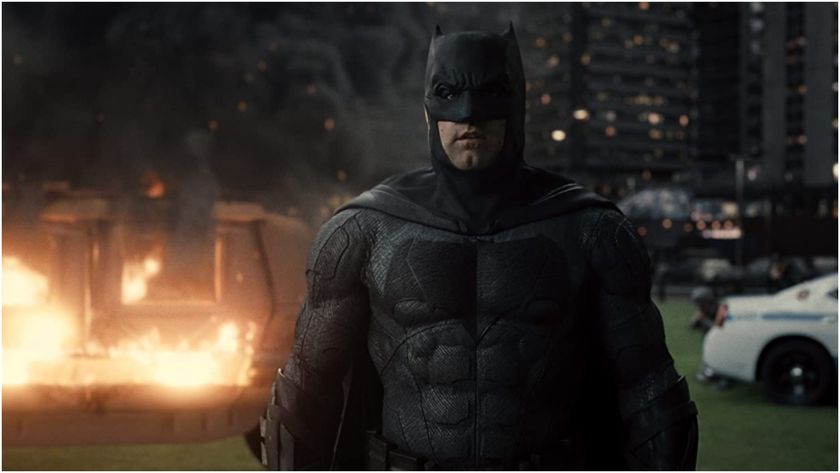
Ben Affleck reflects on the "excruciating experience" playing Batman in the Zack Snyder movies: "A lot of it was misalignment of agendas, understandings, expectations"
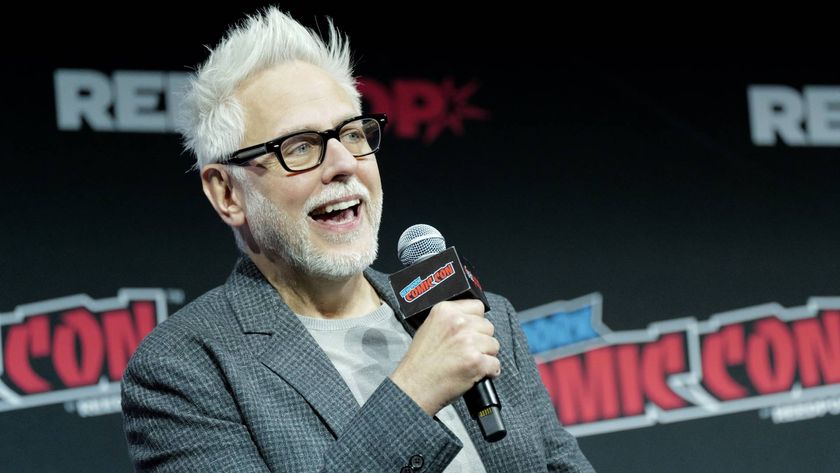
James Gunn reacts to Jason Momoa almost spoiling his Lobo costume in an interview: "I just want to profoundly thank Jason’s publicist"

